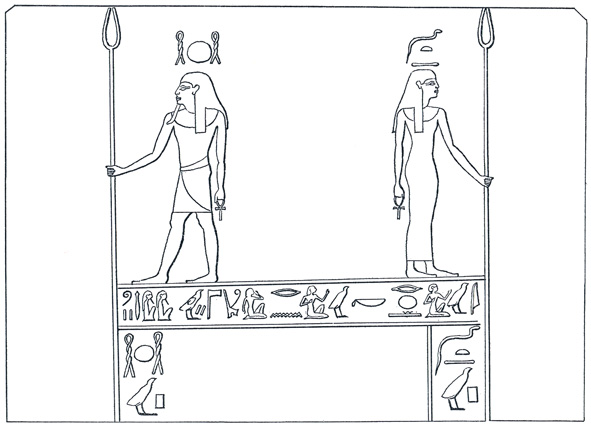At last summer’s Many Gods West conference in Olympia, Washington, I offered a workshop on discernment. In my spiritual communities, discernment is valued highly, yet I found few descriptions of how to engage in a discernment practice. One of the benefits of discernment is its cultivation of inner authority, so it is helpful that there is no “one true way” of discerning. I wanted to offer a practice and context to help people begin or deepen their own discernment.
This blog post is a very concise summation of my talk and includes a link to a recording of a meditation I led. If it is not clear already, I will speak of discernment as a psychospiritual practice. As you will see, I believe it is a useful practice for those who do not have a theistic or spiritual orientation. In this post, however, I will be including the spiritual dimension.
Discernment, according to Etymonline.com, comes from Old French and Latin roots and has connotations of sifting and separation. During my talk, I defined discernment as “judging without being judgmental,” and a participant approached me and pointed out the usefulness of the sifting metaphor to clarify the meaning behind that. When panning for gold, one sifts through the ore to separate out the desired mineral. The discarded ore is not “bad,” it simply does not pertain to the desired goal.
A discernment practice, then, cultivates our inner authority to tease apart the meaning of experience, to separate what is beneficial to our values and desires from what is not.
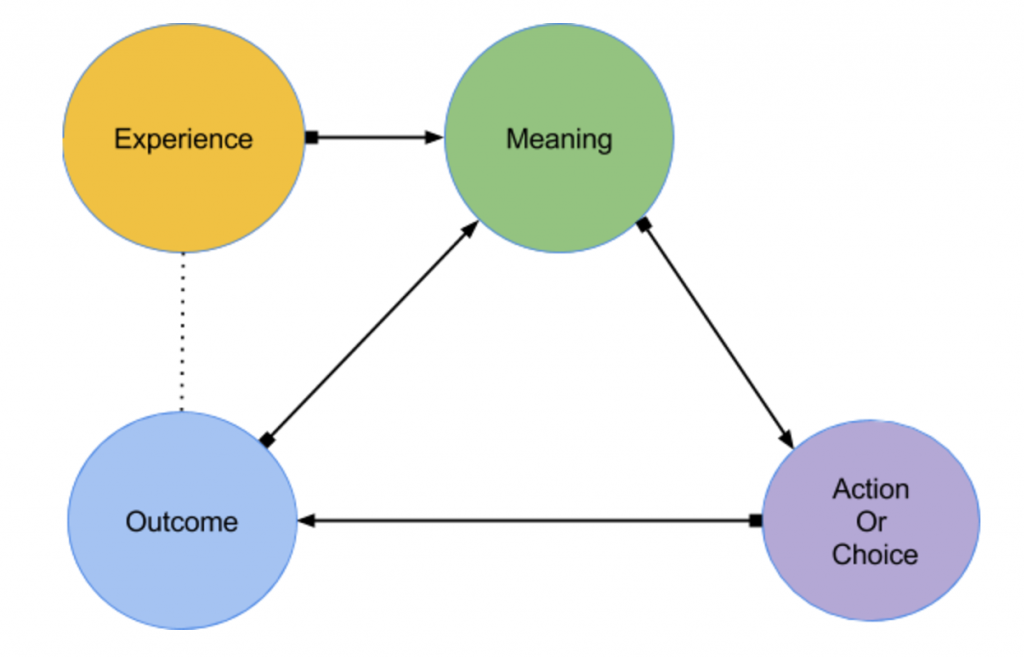
This image offers a conceptual model, drawing upon cognitive-behavioral models of experience and cognition, to help us discuss the practice of discernment. We all have Experiences, which are essentially neutral occurrences that of themselves do not have meaning. For example, an experience might include:
- Having a strange twinge in your shoulder
- Reading a friend’s Facebook post
- Having a dream in which your deity communicates with you.
Meaning is what we understand about our Experience. This includes the pre-existing beliefs we have about ourselves and the world; our mood; the political climate; the weather; our previous interactions with others.
- If I’ve had that twinge in my shoulder before, for example, and then threw my back out, that might influence the Meaning I make of the shoulder-twinge. “Uh oh.”
- If I had a fight with my friend last night, that might shape the Meaning. “This post is about me!!!!!”
- If I ascribe to a religious framework that discourages people from believing that gods can communicate directly, that might form the Meaning. “This is just a strange dream, or a misleading one.”
The Meaning we make of the Experience leads us to make a Choice or take Action.
- “I’d better get a massage and see if I can avoid another back issue.” or “Oh, that twinge just lasted for a second and went away, I’m going to ignore it.”
- “I’m going to post an angry, passive-aggressive response to this post!” or “It’s unlike my friend to be passive aggressive, I’m going to call and see if we’re cool.”
- “I’m going to ignore this dream.” or “Maybe my god is talking to me, I’m going to follow the dream’s suggestions.”

Whatever Action we take (and inaction is an action), what happens next is the Outcome, which either reinforces our Meaning or challenges it.
- If I get the massage and still throw my back out, I might question my understanding of the shoulder twinge.
- If my friend tells me I’m overreacting, I might question a lot of things about my experience or the friendship.
- If I follow the dream guidance and have an amazing experience, I might start to believe (or believe more deeply) that my god can talk to me via dreams.
Meaning moving into Action is where we practice Discernment. Too often we accept our premises of Meaning so rapidly that we take unconsidered or damaging actions. Alternately, we might divest our power of Meaning-making or Meaning-seeking by deferring to an outside authority.
Meaning is a deeply Existential concept, and to break it down in a blog post would be ill-advised. To keep things simple, I look at Meaning as beginning with my personal experience—the thoughts, emotions, and sensations I have, my history and personal associations—and then widening it out to larger circles of Meaning. Wider circles include political meanings, cultural messages, spiritual beliefs, and so forth.
St. Ignatius of Loyola, a Jesuit priest, developed a practice he called “discernment of spirits” after a long convalescence from illness. Essentially forced to spend hours with himself, Ignatius began observing the thoughts he had, and noticing that each thought engendered a feeling in his body. He began to categorize the feelings according to his own theological framework. To be very simple, some thoughts come from God and some from Satan, and he believed one could discern the origin of the thoughts by observing the quality of feeling.
For those of us who do not subscribe to dualistic religion, this framework is not useful. I acknowledge P. Sufenus Virius Lupos of Aedicula Antinoi for noting that this dualism might negatively influence how people in other traditions view discernment. We may need to take some time to name and define the possible influences upon us so that we can practice more effective discernment, engaging in what Anomalous Thracian calls “the three Ds“: distinctions, differentiations, and definitions.
I believe that Igntatius’s approach has merit, and have created a version inspired by his. I have included a fifteen-minute recording of the Discernment meditation. It begins by getting us deeply grounded in our bodies, and then invites us to observe our thoughts and notice the feelings they engender. In part two, I invite you to call to mind a spiritual teacher or other influential person in your life, to call their thoughts and actions to mind and observe the feelings they engender. In part three, I invite you to contact a spiritual ally and invite them to send you a message, so you can sense how that contact feels in your body.



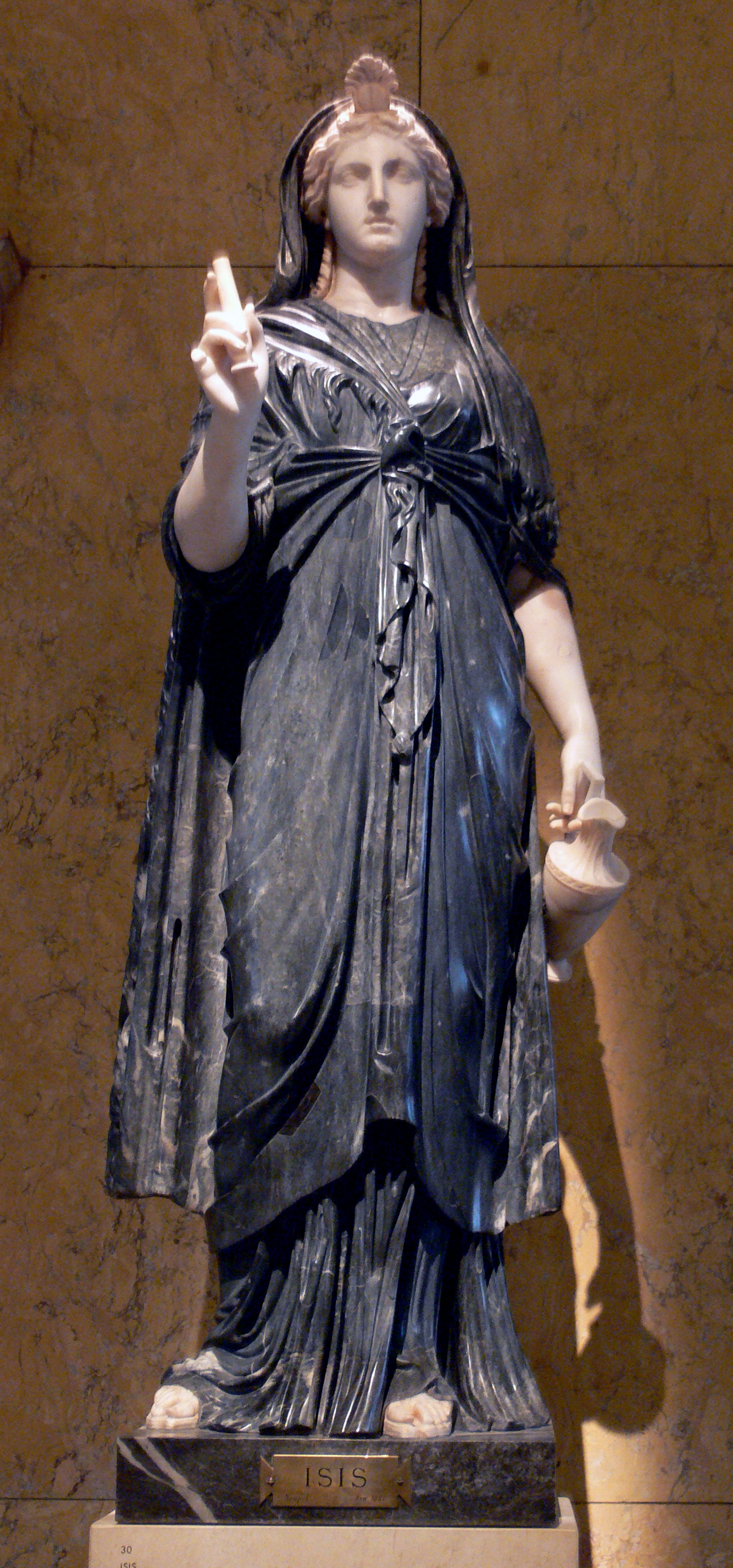



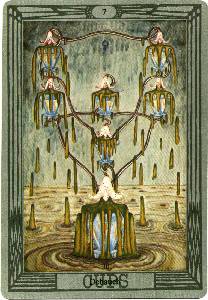
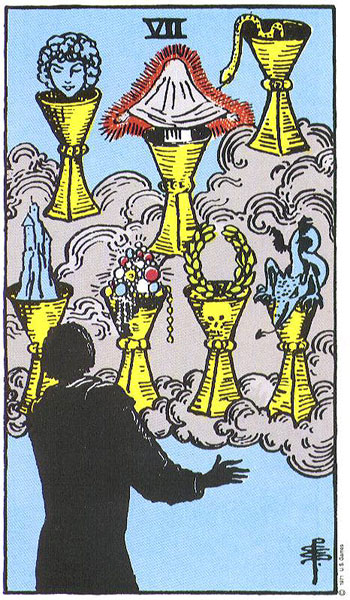 Even subtle fantasies can debauch us, pulling attention away from the uncomfortable work of the moment. Fantasies of all the wealth we should be amassing, the fame and glory we want and fear to have, the inflated sense of purpose that says the simple presence of a moment is not enough. We look to heroes, saints, or other legends and imagine that they never had to deal with the kinds of insults and daily mess that we face. They never had a boss that criticized them, or a child who struggles to pay attention, or a lover who confronts them with their faults. We imagine that we’re destined for something more, which means this moment is not enough. This relationship, this chore, this task somehow fails to feel filled with the sense of ebullience and expansiveness that we long to feel, so we abandon the task and go into fantasy or some other debauchery. We can be debauched by memories of the past—successes or failures that take us away from making an earnest effort in the present.
Even subtle fantasies can debauch us, pulling attention away from the uncomfortable work of the moment. Fantasies of all the wealth we should be amassing, the fame and glory we want and fear to have, the inflated sense of purpose that says the simple presence of a moment is not enough. We look to heroes, saints, or other legends and imagine that they never had to deal with the kinds of insults and daily mess that we face. They never had a boss that criticized them, or a child who struggles to pay attention, or a lover who confronts them with their faults. We imagine that we’re destined for something more, which means this moment is not enough. This relationship, this chore, this task somehow fails to feel filled with the sense of ebullience and expansiveness that we long to feel, so we abandon the task and go into fantasy or some other debauchery. We can be debauched by memories of the past—successes or failures that take us away from making an earnest effort in the present.



